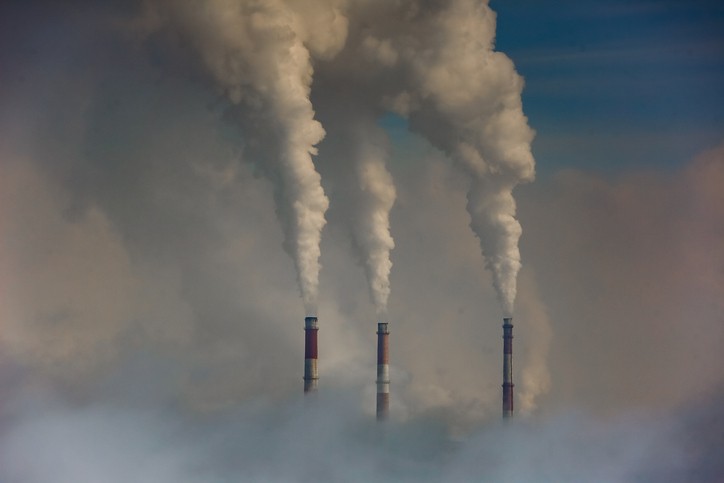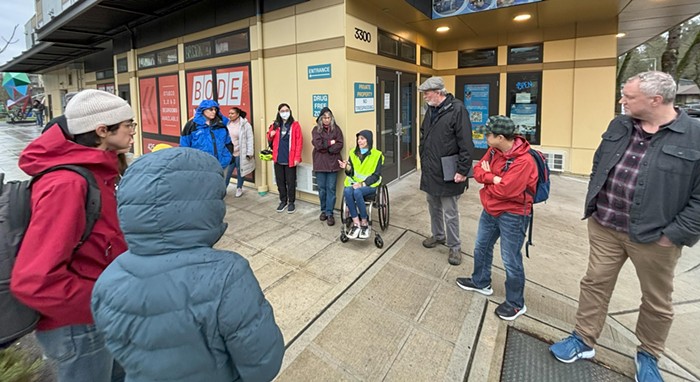Humans are on the fast track to extinction, and the mess that we have made will take most of the larger animals with us. In our unenviable position as witnesses of the collapse of the biosphere, we can seek grace in the certainty of the peaceful afterlife of the planet.
The death of the last human will mean the end of human anguish. Picking gorillas as an example of the nonhuman casualties, the death of the last one is also hopeful, because after two centuries of gorilla hunting and trapping, there will be no more of these beautiful creatures to be shot. Pick any species of animal and its extinction will end the misery of its members.
When humans and other animals with brains are gone, Earth will orbit our star without fear and loathing for the first time in 500 million years. To explore this idea, we need to accept what is happening, seek absolution from our sins in the inevitability of the apocalypse, and be assured that the nightmarish character of zoology is almost over.
We Must Accept that We Will Destroy the Planet
Since 1850, the human population has increased from one billion to eight billion, and the level of carbon dioxide in the air has risen by 50%. Carbon dioxide traps heat on Earth, and more of it makes us warmer. We pour billions of tons of this gas into the atmosphere every year by burning hundreds of tons oil, coal, and natural gas every second.
What could possibly happen to change this picture? The pandemic shutdown reduced carbon dioxide emissions by a few percent, but they rebounded and are increasing in its wake. By 2100, the global average temperature will be 4 degrees Celsius higher than the end of the last century. This is the likeliest projection.
Climate optimists will counter this scenario with examples of technological solutions. The effect of these remedies on extinction can be dismissed with a thought experiment. Imagine that we found a way to meet our energy needs without coal, oil, and gas. Once the burning stopped, the future would feel a little cooler, especially if methods for burying the existing carbon dioxide were perfected. But with the climate stabilized, the behavior that caused us to burn so much fuel would intensify, resulting in more humans, less forest and grasslands, and greater pollution of rivers and oceans. With or without climate change, our war with nature will proceed.
Decades ago, Gerald Durrell, the famous conservationist, recognized that “the human race is in the position of a man sawing off the tree branch he is sitting on.” Thirty years after Durrell’s death, the human population has increased by 2 billion and the damage has intensified. The branch will snap now whether we keep sawing or not.
The timeline for extinctions is not known, but, sooner or later, the disappearing mammals will be joined by the other groups of animals. Almost everything will be leaving the metaphorical ark, creeping down the gangplank into oblivion. Millions of other species, seen and unseen, including plants, seaweeds, and fungi will be leaving, too. The tiniest of organisms will inherit the planet, but great gulps of the microbial world will also disappear in the depths of this planetary holocaust.
It's Not Our Fault that It's Our Fault
Look in the mirror and you will see a member of a species of African ape that has devastated the biosphere. You, personally, have caused a great deal of damage, and you are responsible for the suffering of many intelligent and sensitive creatures.
Adults have left a trail of wreckage in their lives, and children will participate in decades of future brutality toward nature. Vegetarians are not responsible for the suffering of farm animals, but they are culpable for the molestation of wildlife through the great net of international commerce.
Throughout history, we have helped ourselves to huge helpings of hubris about the brilliance of humans, and we have avoided the truth of our nature—namely, that Homo sapiens is a uniquely destructive animal that has been active in the business of extinction since it dispersed from Africa 100,000 years ago.
In addition to killing animals for food or to make space for more of us, we have bred and imprisoned animals for entertainment and for medical experimentation. To obviate our unpleasantness, we have decided that other species lack the capacity for terror. In this century, all but the cruelest of philosophers have moved on from the Cartesian fantasy that the absence of conversation implies the absence of emotion, but we cling to the fantasy of the heightened sensitivity of humans. While a chicken lacks a great repertoire of expressions of grief, it feels panic and experiences pain to the full extent of its avian brain, and we heighten the horror by keeping birds in factory farms in conditions of exquisite unpleasantness.
There is no excuse for the way that we ruin the lives of animals on farms and in labs, but we are pardoned from killing them in nature and destroying the biosphere. We are guiltless because animals are powered by the transfer of energy from one organism to another. The nightmare of zoology began when this fundamental rule of life was coupled with the evolution of brains and the necessity of suffering.
This coupling happened long before we arrived. Sentient life is designed for suffering because the avoidance of it is what keeps an animal alive for long enough to propel its genes into the future. When brains evolved, avoidance became conscious, and with consciousness came fear. Our absolution for ruining the planet comes from the same evolutionary source: We need to eat and we seek to reproduce, and by being good at both things we have extracted too much energy from the planet. Nature was designed in this way.
Earth Will Be Better Off Without Us
Animal sensitivity is the foundation of the great tragedy of the biosphere, the overarching sadness of Earth, which will end when the species with brains are gone. Human extinction will mean no more animals in laboratories to dread the sound of the opening door and the sight of the approaching white coat, and, over a longer time span, injuries, illnesses, and starvation in nature will disappear, species by species as the planet gets hotter. This is not much to go on, but the end of suffering is the best news about the end times. Happiness will end too, of course, but contentment is fleeting, and an animal that is never born will not miss the moments of satisfaction and joy.
Humans have always caused the suffering of other animals; we have destroyed most of the pristine ecosystems, and the rapid change in climate is our fault, too. Most of these actions were hard-baked into human nature. The apocalypse was inevitable because the cost of being human has always been extracted from the rest of nature. What do we do with this clarity of vision? I suggest that part of the answer lies in recognizing the fact that these are the last decades of pain. As terminal illness encourages many people to embrace the relief that they know will come with their departure, so we may feel some grace in these end times.
The way we spend our lives in the absence of hope for the future of humanity is a matter for the individual. The best that any of us can do until the sky falls is to be kinder to each other and humane towards the rest of nature as it suffers with us on this watery globe. The sooner the biosphere collapses, the sooner that the brainy animals will be liberated from suffering. When we are gone, the biosphere is likely to repopulate with new species with brains, and the suffering will resume in millions of years. But at least things will be quiet for a while, and nothing will be horrified by existence as Earth spins on its soft axle.
Nicholas P. Money is Professor of Biology and Western Program Director at Miami University in Oxford, Ohio. He is a charismatic teacher, an international expert on fungal biology, and author of popular science books that celebrate the microbial world. His most recent book, Nature Fast and Nature Slow: How Life Works from Fractions of a Second to Billions of Years, was published by Reaktion in 2021. His writing is noted for blending first-rate science with stories of human interest. His website is www.themycologist.com.



















